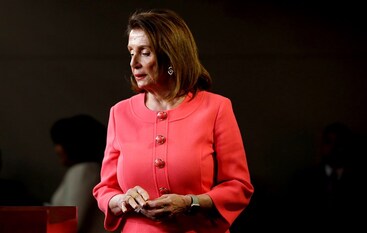Robert Mueller is old. A young man could not have fought in won medals in Vietnam, combatted a murder epidemic in Washington, D.C., and re-designed how the FBI enforces the law. Mueller’s testimony on Wednesday was substantive and damning for Donald Trump. But it was neither electrifying nor polished. And, it did not stampede House Democrats into starting an impeachment inquiry. Some in the media blamed Mueller for the Democrats reluctance to start impeaching Trump finally.
But, the Democrats were unrealistic to hope Mueller’s oral presentation of his report could reverse opposition to an impeachment inquiry. Even a youthful Mueller in full dress uniform would not have to turn the legal circumlocutions of the Mueller Report into electrifying testimony. The Democratic House leadership bears part of the blame for anything the hearing failed to do. The Democrats failed to structure the hearing in a way to maximize the effectiveness of Mueller’s testimony. The Democrats, for example, could have structured the hearing differently.
They could have started with the narrative exposition that the Chair of the Intelligence Committee, Adam Schiff, eventually gave. Schiff said that the story of Trump’s collusion with Russia was a story of using the Presidency to make money.
Schiff paints Trump as seeking hundreds of millions of dollars from building a Trump Tower in Moscow. To obtain Putin’s agreement to the project, Trump was willing to lift economic sanctions levied against Russia. In return, Putin agreed to help Trump become President. To cover up this corruption, Trump and his associates lied to the public and investigators and obstructed justice.
If Democrats expect to build support for impeachment, they must put on a never-ending drumbeat of testimony from both expert and fact witnesses. Mueller is undoubtedly an expert witness, but undercut his testimony with how he wrote his report. In the first part of his report, Mueller identified numerous instances of collaboration between the Trump campaign and Russian agents. But Mueller found that there was insufficient evidence to indict the President of conspiracy. Trump and his supporters seized on the finding of insufficient evidence to claim there was no evidence Trump colluding with Russia.
In the second part of the report, Mueller detailed ten instances of obstruction of justice. Citing Department of Justice guidelines, Mueller said that while in office a President cannot be indicted. Thus, Mueller claimed he could not consider whether Trump could be exonerated or subject to indictment.
Mueller could have used the same logic to avoid saying there was insufficient evidence to charge Trump with conspiracy. He could have laid out the evidence of conspiracy without a determination of insufficient evidence. Presenting evidence of both a conspiracy and obstruction of justice would have fired up Mueller’s testimony.


